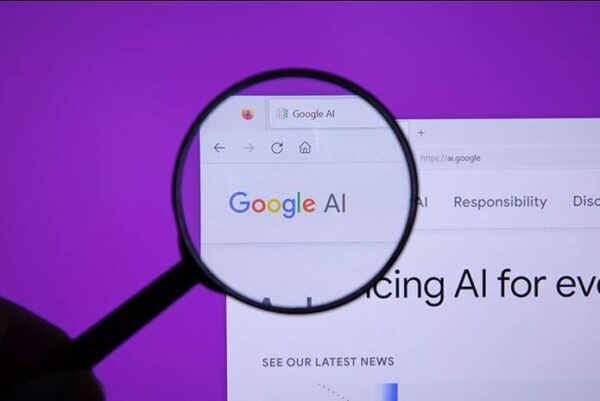Starting around a week now, as billions of people search for topics ranging from news to recipes to knowledge questions, an AI-generated summary will be the first thing they see. fairy.
At its annual I/O developer conference, Google introduced AI Overviews as a way to give customers quick answers and help simplify the online search experience, but it There’s also another impact: user and advertiser retention on Google.com. This will be a new era in Google’s long-standing effort to capture your attention.
“Google will Google it for you,” said Liz Reid, head of Google Search. While Google was once primarily a gateway to other parts of the Internet, it has spent years consolidating content and services to make itself the web’s primary destination.
Weather, flights, sports scores, stock prices, language translations, movie showtimes and a host of other information have gradually made their way into Google search over the past 15 years. Finding information no longer requires you to visit another website. With AI Overviews, the rest of the Internet could meet the same fate.
Website owners are understandably concerned. While Google’s presentation shows that its AI can come up with answers on its own, these summaries are all based on articles, cooking blogs, product reviews – content written by humans.
All of these sites rely on advertising revenue from people visiting their sites, something that may soon no longer be the case if users can get a summarized version of a site within just a few seconds after searching.
Google has tried to allay businesses’ fears that users will no longer see links or click on their sites. Ms. Reid stated in I/O that articles featured in AI Overviews will receive more traffic than traditional displays.
However, the company has not predicted whether overall search numbers will decrease. According to research firm Gartner, traffic to websites from search engines will likely decrease by 25% by 2026 – a disastrous number for most websites and content creators.
AI Overviews is the culmination of a product line that spans nearly two decades, starting with the launch of the personal homepage that transformed Google.com into a closed online ecosystem.
One of the first big advances in the amount of information Google could display on its search pages came in 2012, with the launch of Knowledge Panels – boxes of information, often found in from Wikipedia, displays basic information, photos, and biographical details about a person or topic.
Knowledge Panels have expanded so much that Google CEO Sundar Pichai proudly boasted that they contained 70 billion lines of information in 2016. They were followed by other services such as stock prices and weather forecasts. – an obstacle for websites that specialize in providing that information.
When Google started including sports schedules on its site in 2013, online newspaper TechCrunch published an article titled “Google Adds Basketball Tournament Schedules to Search Engine, Ignoring Sports Sites” sport”.
As the amount of information Google aggregates grows, so do concerns around misinformation. Knowledge Panels sometimes list living people as deceased.
AI Overviews also gave incorrect answers. Publishers have long been wary of how Google affects their existence on the platform.
This reliance on traffic has led to more than a decade of media companies seeking revenue through search engine-optimized articles, with headlines like “What time is the Super Bowl ?” and “What is that white thing on your food?”. These articles, created for Google recommendations, are now more likely to be the source of information for AI Overviews.
The potential threat from AI Overviews is especially serious, because because of it, other major platforms are in decline.
Facebook’s changes to its news feed repeatedly made waves in the media industry, significantly reducing traffic to the sites and causing them to shift to video content in the mid-2010s.
Facebook has prioritized news content so much that political magazine Mother Jones has seen a 99% drop in recommendations since its peak year, while Meta announced in February that it would remove its news section. Facebook for American users. Some countries like Canada can’t even find news-related links on Facebook.
While Facebook turned its back on the news, other platforms have not offered any satisfactory solutions. Twitter, which has never attracted as much traffic or advertising revenue as Facebook or Google, has become even more irrelevant for businesses since billionaire Elon Musk took over the platform and rejected content. news.
Additionally, even though Apple News has driven a large amount of traffic to news sites that work with its app, publishers still struggle to generate revenue because most users still Use Apple’s platform.
Businesses now largely rely on direct visits to their homepage and Google suggestions. If AI Overviews take away a significant portion of the latter, it could lead to fewer how-to bloggers, resulting in less diverse information. It will also make Google’s empire continue to expand every time we access the Internet.
“Two decades ago, Google became the darling of Silicon Valley as a tiny startup with an innovative way to look up the emerging Internet. That Google is now gone. Google today is the monopoly gatekeeper of the Internet, and one of the wealthiest companies on the planet,” the justice department stated in its 2020 complaint.












